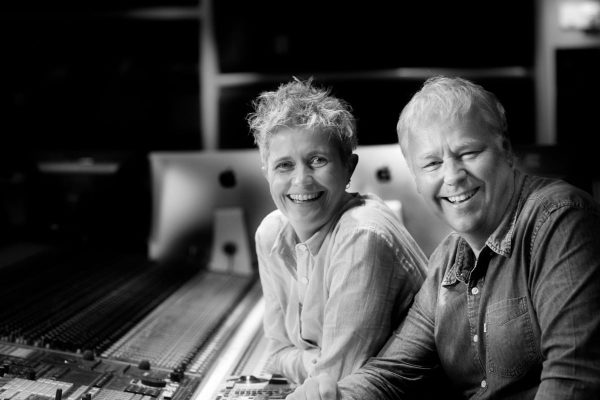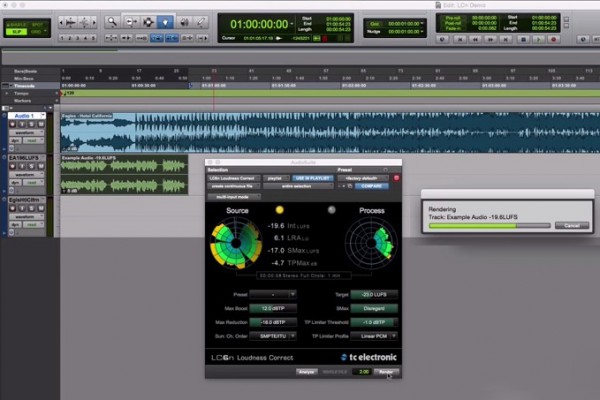
I was out of work so created my own TV series. Easy to say but in the real world this was a tough choice.
For many years I was a gun for hire says Phil Harris Executive Producer of the River to Reef tv series now in its 15th year of production. Shooting and editing as a freelancer for corporate clients in the days prior to editing on computers is where I began. The corporate world had lots of work and no one else but a pro could do it due the equipment being so expensive and specialized. Computers and digital changed all that and the reality soon hit home that anybody could now shoot and edit even though initially the final creative quality was dubious to say the least. Work quickly dropped off and I wondered what I was going to do to make a living.
A friend asked me if there was one TV show in the world you would like to be the producer of what would it be? Days of our lives was my answer. What and why he asked. Because it goes on forever and it’s the same gig every week. My answer soon became the challenge to create my own job and secure my future with a tv series that I owned and benefitted from. I was sick of the feast and famine of the corporate work and the many tv commercials I shot and edited for several ad agencies and commercial broadcasters. It was not uncommon for me to be watching one of Australia’s largest national free to air broadcasters’ channel 9 and I had made every ad in a three-minute break, just to give you some idea of how many adds I made back then.

Phil Harris early on in his career filming a documentary
Fast forward to River to Reef. But a fishing show! Let me make it super clear, I am not a fisherman and have never been bitten by the bug and the best have tried to get me hooked. How this came about is another story in itself so I won’t go there for now. But it was very clear that a tv series was the way I wanted to go. The subject was there and I knew the right person to front not only the camera but to find the money to finance this. With Glen Knight the show host and sales persons we produced two pilot episodes and our first sponsors check was for $2,000 two weeks later. We were off and running with other sponsors soon signing up. I shot and edited the first 45 x 30-minute episodes single handed as well as creating the web site and all the marketing material to support Glen as sales person.

Filming at sea does have its challenges
From humble beginnings on community channel 31 Melbourne back in the analogue days the show soon garnered a cult following and syndication on all the community channels including Brisbane, Adelaide and Perth quickly followed. Our ratings then we a combined 360,000 viewers per episode and we made one episode per week. After 50 episodes we also supplied regional channel 10 and since then the show has been on Foxtel, ONE HD and 7 Mate. But this wasn’t enough I wanted global appeal so did a deal with an international distributor and today the little channel 31 show is in 40 countries in about 20 languages.
Today in Australia this model is quite common however tv land has changed and as most of us know tv ratings are shrinking as are sponsor dollars. My experience so far tells me that sponsors aren’t prepared to spend online like they do on tv. Most still don’t take online seriously however this will change in time and as the traditional Australian commercial tv networks disappear and they certainly will.
As a camera operator/editor that by default eventually became an EP, the one thing that was farthest from my mind and something I did not sign up for was dealing with on screen talent. Don’t get me wrong I love working with all sorts of people and I’m told I am pretty easy to get along with. I find there’s nothing more satisfying than working with highly skilled presenters and actors, however I have had occasions with one stand out where I had to fire key on screen talent while shooting on location due to them thinking it was a vacation and not wanting to work while I was paying them.
My speciality is producing brand funded content. This is sponsored content by brands that want to attract customers to their products. While that’s great and fantastic I have a golden rule, entertain first and educate with product second. This so far seems to work for the sponsor and the viewer but it’s a balancing act that can easily swing too far one way or the other.
As an EP 95% of my time is spent raising finance and 5% actually working on the production. Newbies and people not familiar with how commercial tv works in Australia are dumbfounded by the minefield of people wanting to put their hands in your pocket. Here are my top 5 pieces of advice to anybody aiming to be an independent EP.
1. Everyone wants a piece of the money you have raised.
2. The commercial broadcasters in Australia are unique. We buy the airtime to screen our productions, that’s if they like what they see and airtime doesn’t come cheap.
3. Beware of anyone distributing your programme. We have had many companies distribute our DVD’s including online platforms and international broadcast distributors and are yet to see any substantial profit. The catch is in the detail of the contract and the term “after costs” and the costs are rarely capped so up and up they go until there is very little to give back to the producer.
4. If you are outsourcing your post production avoid paying hourly rates as this is often abused. In place have the post company or editor quote on each completed episode up front. This way there are no surprises but make sure they understand it’s only complete once you have approved it as complete and to your exacting standards.
5. This is the big one. You as EP need to be highly motivated and a self-starter. You are the driving force and the only person you can rely on. You come up with the big idea in the first place and spend a lot of time building and fine tuning your proposal before contacting and convincing your ideally targeted potential sponsor/partners that you have the perfect way of helping them sell or brand their products or services to your audience. Once that is done, then and only then you find your crew and talent and do the deal with the broadcaster all the time dealing with your clients/sponsors expectations.
I’m often asked by friends, “so how do you make money with so many costs?”.
It’s a simple answer. Have an accurate as possible budget and a great proposal, go sell, sell, sell, to sponsors or as I call them partners. Cut the best deals you can on every aspect of production without compromising too much on the quality and do the best broadcast deal you can and what’s left after tax is yours.
I’ve got to be honest, it’s not an easy gig but very satisfying when it all works and your partner/sponsors are slapping you on the back due to increased market share for their products and the audience love your show.
There is one last key point I’d like to mention, when it comes to having that great idea for a show think very carefully about who will put money into it and what’s in it for them. When selling focus on that last bit. The key is “what’s in it for them” not what’s in it for you.




